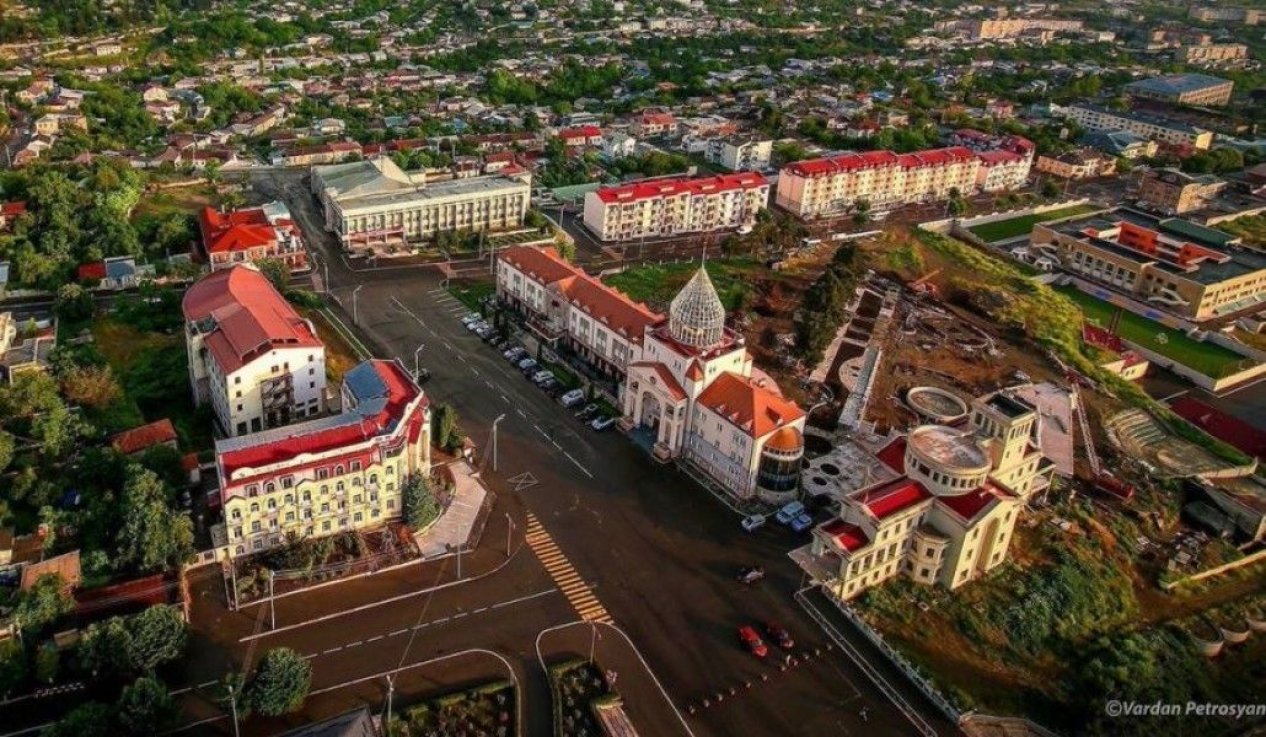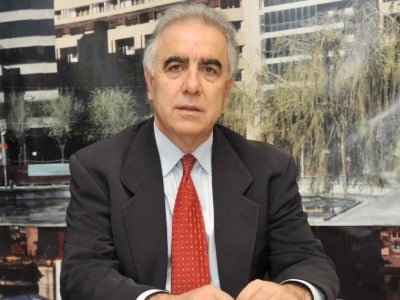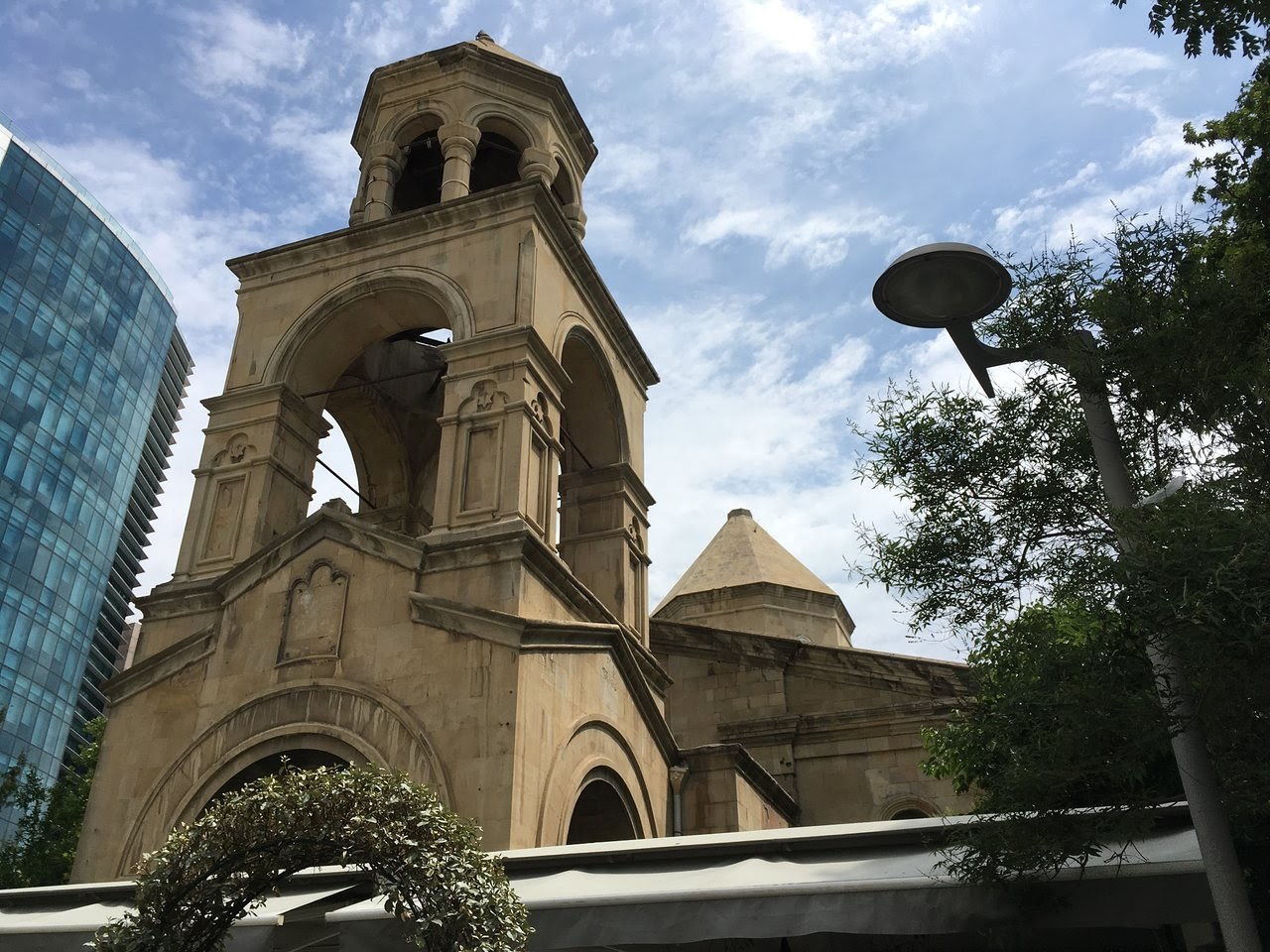
If things continue this way, President of Azerbaijan Ilham Aliyev will demand new concessions, and, unfortunately, will receive them, Harut Sassounian, publisher and editor of the California Courier newspaper, said in an interview with NEWS.am. Accusing the current government of Armenia of numerous mistakes that, in his opinion, led to defeat, terrible human casualties and territorial losses of the Armenian side, Sassounian predicts that on the day of the end of the five-year term (of the deployment of Russian peacekeepers), the Azerbaijanis will enter Stepanakert (Khankendi - ed.). He also considers the transfer of minefield maps in Aghdam district to Azerbaijan as a gross mistake. If this trend continues, both Artsakh and Armenia will face a real threat. If a new leader came to power in the country, it would at least prevent new losses, preventing new concessions, said the Armenian-American publisher.

Before moving on to the rest of Harut Sassounian’s conclusions, it is worth reminding that the transfer of minefield maps of territories that came under the control of Azerbaijan as a result of the Second Karabakh War is not a mistake and not a merit of the Armenian authorities, but a direct obligation enshrined in international law.
According to Articles 7 and 9 of Additional Protocol II of the Convention on Prohibitions or Restrictions on the Use of Mines, Booby-Traps and Other Explosive Devices, information on mined territories, areas, booby-traps and other devices of this type must be recorded and stored.
After the cessation of active hostilities, in order to protect civilians from danger in mined areas, the parties to the conflict should transfer to each other or to the secretary general of the United Nations this information, that is, registration documents on mined areas.
As a member of the UN, Armenia is undoubtedly obliged to fulfill these requirements.
It is difficult to deny the plausibility of Sassounian’s scenario regarding the entry of Azerbaijanis into Khankendi after the expiration of the period of deployment of the Russian peacekeeping contingent in Nagorno-Karabakh. Having done this formally, Azerbaijan will act within the framework of its sovereignty. Moreover, such an action will be legal both in the case of the peaceful deployment of civil institutions, and as an anti-terrorist operation, since this territory belongs to Azerbaijan according to all laws, this fact is not disputed by any of the influential actors in international politics.
That is, Baku can act at its own discretion within its jurisdiction. Moreover, the termination of the mission of the Russian peacekeepers in Karabakh in case of disagreement of one of the parties on its extension after five years from the date of their deployment is quite specifically envisaged in the trilateral statement on Karabakh, signed by Armenia as well on November 10 last year.
Nevertheless, with all the formal correctness of the American publisher predicting such a course of events, his conclusion about the ‘real threat’ to the Armenians, including in Nagorno-Karabakh, speaks of an erroneous or biased vision of the situation.
We won’t delve into ancient history, which, according to the Armenian side, allegedly testifies to the fact that their people have inhabited almost half the world since time immemorial. Even if they are right, with which many historians of the world disagree, this doesn’t justify the fact that Armenia has occupied 20% of the territory of Azerbaijan since the beginning of the 90s. The belonging of these territories to Azerbaijan and the fact of occupation have been recognized at the international level, including by four well-known UN resolutions published on the website of the US Department of State.
It is known that in the 19th century, the United States annexed more than half of the territory of neighboring Mexico, including today's Texas and California. Do tens of millions of Mexican Americans have the right to declare independence, referring to this fact, or to demand the annexation of the territories lost in the past to this country? Will Mr. Sassounian justify such a request from the Mexican community in the United States, the second largest after Mexico itself? That is, the adherents of the "independence of Nagorno-Karabakh" from the Armenian diaspora insist that the principle of self-determination of peoples prevails over the principle of territorial integrity of states in international law, as applied to Azerbaijan. But will they also impose it on the US?
Should Washington be afraid that the Armenian Diaspora of America, which is compactly residing in many states of the country, will one day also want to proclaim Armenian states in these territories?
The answer, of course, is no. Washington won’t allow this and Baku rejects it in the same way.
After World War II, which claimed tens of millions of lives, big states agreed to remake the world order, and the UN was created to maintain this world order. Today, encroachments on officially recognized foreign territories, regardless of ethnicity and nationality in the past, are unacceptable and are considered criminal.
Azerbaijan’s military liberation of previously occupied territories has convincingly proved the inviolability of this principle, since, apart from the limited hype of the engaged parties, it did not cause any negative reaction in the world.
Residents of villages in the regions of Armenia bordering on Azerbaijan talk about the expulsion of the Turks (Azerbaijanis) from these territories, who originally inhabited these lands.
As for the danger of the return of the remnants of the former NKAO under the control of Azerbaijan, it is certainly far-fetched. The experience of the USSR convincingly proves that Armenians and Azerbaijanis have peacefully coexisted for tens of years, sharing sorrows and joys equally in peacetime and wartime, until, in the late 1980s, Armenian nationalism blew up the situation.

Armenian Church in Baku
In this sense, the letter of the Baku Armenians to the Catholicos of All Armenians Garegin II and the Armenians of the world with a request to influence Yerevan in order to end the occupation of Azerbaijani territories, published in April last year, is indicative.
Those who visited Nagorno-Karabakh and Baku in the 80s could see with their own eyes that the standard of living, material supply of the Armenian population is much better than the standard of living not only of other regions of the Azerbaijan SSR, but also Baku itself.
Hetq: There was no infrastructure in Nagorno-Karabakh during Soviet times
Today, in addition to Azerbaijanis, representatives of other nationalities live in Azerbaijan. These are Talish, Tats, Kurds, Mountain and European Jews, Lezgins, Russians and many others. Moreover, thousands of Armenians live happily in the country. The Constitution of the Republic of Azerbaijan guarantees all citizens, regardless of nationality and religion, equal rights, naturally, requiring them to protect the independence, sovereignty and territorial integrity of the state.
In this sense, the Armenian population of Nagorno-Karabakh in the eyes of the central government of Azerbaijan is no different from the rest of the country.
“All citizens of Azerbaijan, representatives of all peoples and religions live normally, in peace and harmony here. The Armenian people will live like this too,” Azerbaijani President Ilham Aliyev said during his first visit to the liberated territories on November 17, 2020.
“We have nothing against the Armenian people. I have said in numerous interviews over the past 44 days that they are our citizens and they will see that they will live well under the leadership of Azerbaijan, that they must get rid of the criminal and cowardly junta,” he added.
As for the unnamed alternative leaders, whom Harut Sassounian speaks about, presenting them as a means of Armenia's way out of the current situation, he apparently had in mind the only more or less serious rival of Nikol Pashinyan in the recent elections, the country's second president, Robert Kocharyan.

The interlocutor of epress.am Sevak Sovia Kirakosyan talks about the expansionist policies of the “elites” of Armenia, including Robert Kocharyan.
However, Kocharyan and other representatives of the past leadership have so negatively established themselves by instilling corruption and cultivating hostility towards neighbors that they have become completely unacceptable neither for the people of Armenia, nor for Azerbaijan of other parties interested in resolving the conflict. In particular, Robert Kocharyan and his Karabakh ally, another ex-president Serzh Sargsyan, for more than a quarter of a century, deceived their people and only delayed the negotiation process, pursuing one goal - to consolidate the occupation of the territories of Azerbaijan, which became for them an instrument of profit and achievement of political power. According to the President of Azerbaijan Ilham Aliyev, the issue of the status of Nagorno-Karabakh is closed. In May, Robert Kocharyan himself admitted that a military solution to the conflict is impossible.
That is, the political settlement is rejected by the opposing side, the victor, which has all the trump cards in its hands, and the military one is rejected by the defeated side, due to its weakness. There remains the only way out of the crisis in the current situation - the integration of the Armenian population of Nagorno-Karabakh within the Azerbaijan Republic, which is what Baku is proposing.
Azerbaijan, in the event of resistance by the separatist regime in Khankedi, after a five-year term for the deployment of Russian peacekeepers in Karabakh, can refuse its extension and act on its international territory according to any scenario, one of which, hypothetically, could be the forceful restoration of the powers of the central government in a part of Nagorno-Karabakh temporarily out of its control.




















